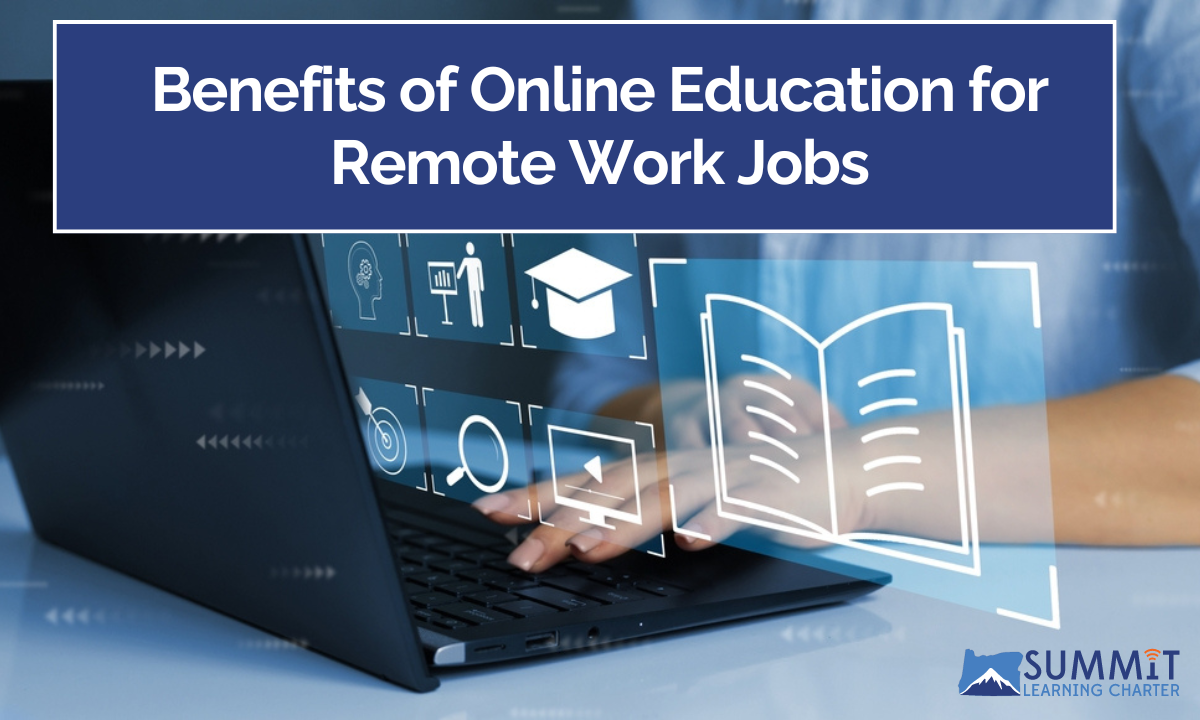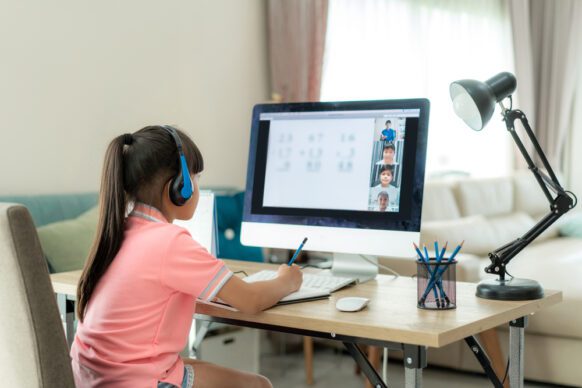
How Online Learning Prepares Students for Remote Work
Worldwide, more than 28% of people work remotely full-time. And, the number of people who work remotely part-time is even higher.
Remote work has been steadily increasing since 2015, and the COVID-19 pandemic only catalyzed the number of jobs performed remotely.
Even now, as many companies are pushing for their employees to return to offices, the preference for remote work continues to grow. Remote work has many benefits, ranging from greater flexibility to reduced carbon emissions, and of course, there are also challenges.
However, the challenges of remote work can be overcome when workers are equipped with the right tools and techniques – both of which students learn from a young age when they study remotely.
In this article, we’ll talk about what makes remote work different from in-person work, and how learning online prepares students with the skills they need to work remotely (and also in the office).
What makes remote work different than working in person?
In a word, everything.
Everything from how employees collaborate and communicate, to how they socialize and balance work and life responsibilities, are different when working remotely.
Here are some of the obvious and not-so obvious differences between both work models:
Communication: In person, communication is face to face. It happens more spontaneously and naturally. Body language and verbal cues are involved – cues that can sometimes get lost online. For remote workers, communication happens via video meetings and asynchronous text-based channels like Google Chat, Slack, and email.
Flexibility: Remote workers typically have more flexibility in their scheduling than in-person workers. While it might be easier for them to step away from their work for a doctor’s appointment or to take their kids to school, it also requires greater discipline.
Work-life balance: It’s easier to keep work and life separate when they happen in two different environments. Remote workers may find the line between their personal and professional lives blurring if they’re not careful.
Accountability: In a physical work environment, there’s a sense of accountability through visibility that isn’t present online. Remote workers don’t have someone directly supervising them. This greater autonomy means they need to be self-starters and know how to keep themselves on track.
Preparing Online Students for Remote Work

Because of the similarities in studying and working online, online learners are able to practice a variety of skills that will benefit them if they one day work remotely.
Let’s take a look at 4 ways online education benefits remote work jobs:
Being Disciplined and Managing Time Effectively
It’s much easier for students to procrastinate and blow off their studies when their teacher isn’t watching.
Whereas in a traditional classroom, students are all doing the same work in the same allotted time, while online learners have much more flexibility in their scheduling. Flexibility that matches the remote work lifestyle but comes with its own set of challenges. Namely, greater flexibility means students need to learn how to hold themselves accountable.
That accountability helps them cultivate essential skills for the remote work environment.
When studying online, students learn how to
- motivate themselves effectively;
- manage their time and due dates;
- stay focused in the face of distractions.
Employees who studied online will find it much easier to manage their time. They’ll already understand how to manage their personal and professional responsibilities, and they won’t have trouble staying productive without a supervisor directly monitoring their work.
Related: A Typical Day for a Student Attending Virtual School
Learning to Collaborate and Communicate Remotely
Online students learn to engage with their teachers and peers through discussion forums, email, and video chats. This helps teach them how to clearly articulate their ideas, ask questions effectively, and collaborate from a distance – skills they’ll need to thrive in the remote work environment.
When these students enter the workforce, they’ll have no trouble collaborating on projects with their remote colleagues. Communicating asynchronously to ensure tasks are completed on time and goals are aligned? Easy! They already know the ropes after learning asynchronously for so many years.
Written communication is also more delicate than face-to-face interactions. We miss out on all the physical cues of communication, and messages can easily be misinterpreted. Online learning develops the important interpersonal skills needed for communicating through written messages.
Getting Comfortable Working in Digital Environments
Students in online learning environments naturally become more comfortable with a wide variety of digital tools, from learning management systems to virtual communication platforms.
They learn how to collaborate, troubleshoot, and use platforms effectively in virtual spaces. They develop their digital literacy skills far beyond just learning how to use Google and social media platforms.
And remote work relies heavily on those digital literacy skills!
Remote workers depend on tools like Slack, Google Meet, Zoom, and project management software to stay connected, coordinate tasks, and work effectively.
When students are already familiar with similar online learning systems and platforms, they can easily transition to the platforms and tools needed for remote work.
Solving Problems Independently
When students can’t just walk over to ask their teacher a question, they learn to take initiative.
They develop critical thinking and problem solving skills. Online learning students approach challenges methodically and resourcefully – whether it’s troubleshooting a technical issue or figuring out how to handle an assignment independently.
The remote work environment mirrors the remote learning experience:
The IT team may not always be on hand to provide support. Managers and teammates may not always respond promptly to questions.
But workers still need to be productive with their team and meet due dates!
If they’ve already faced those scenarios in their formative years, they’ll be much better prepared for remote work.
Preparing Students for Success with Online Learning

Online learners clearly have an advantage when entering the workforce for a remote job. By learning online, they develop the necessary skills related to asynchronous communication, time management, and staying on top of tasks. In addition, online learners are already well-versed in using project management tools and other technologies.
Summit Learning Charter is a fully accredited, tuition-free online public school for grades K-12. We’re committed to providing the extensive academic support students need to succeed while teaching them to take control of their education. Learn more about our virtual academy and contact us to get your questions answered.



